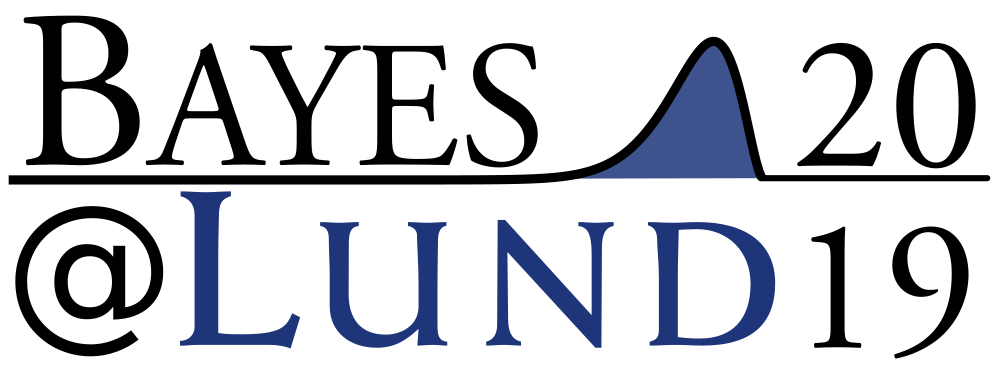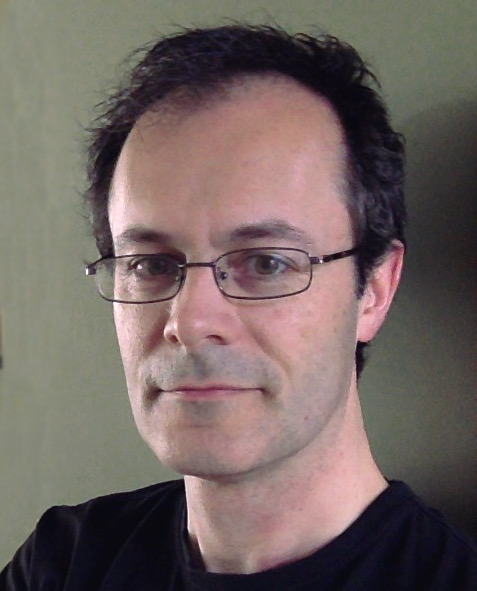
Information
📅: 07 May 2019, 08:30-17:00
📌: Palaestra, Lund University, Paradisgatan 4, 223 50 Lund, Sweden
Main Organizers: Rasmus Bååth, Alexander Holmes, and Ullrika Sahlin
Invited speakers: Maggie Lieu and Robert Grant
Invited speakers
Maggie Lieu

Maggie is an astrophysics research fellow working at the European Space Agency in Madrid. Her main research involves modelling the mass distribution of clusters of galaxies to understand the nature of dark matter and dark energy in our Universe. Maggie’s talk is Hierarchical models and their applications in astronomy; how hierarchical models can be a powerful tool for inference.
Robert Grant

Robert Grant is a medical statistician, turned freelance trainer, coach and writer in Bayesian models and data visualisation. His book Data Visualisation: charts maps and interactive graphics is published by CRC Press. His talk Visualisation for refining and communicating Bayesian analyses will review relevant general principles of effective visualisation, recent work on Bayesian workflow, and the role of interactive graphics.
Program
| Time | Presentation |
|---|---|
| 09:00-09:55 | Welcome and keynote presentation |
| Hierarchical models and their applications in astronomy, Maggie Lieu, European Space Astronomy Centre, European Space Agency. | |
| 10.00–10.40 | Session: Bayesian Learning |
| What cause successful learning in Bayesian methods? George Moroz, National Research University Higher School of Economics. | |
| Introducing Bayesian Stats through Signal Detection Theory, Gerit Pfuhl, UiT The Arctic University of Norway, Department of Psychology | |
| 10.40–11.00 | Coffee break |
| 11.00–12.00 | Session: Bayesian Flexibility |
| Prior thoughts on mixed-membership models in linguistics, Chundra Cathcart and Gerd Carling, Lund University, Centre for Languages and Literature. | |
| A Bayesian method to localize lost gamma sources, Antanas Bukartas, Christopher Rääf, Jonas Wallin, and Robert Finck, Lund University, Medical Radiation Physics. | |
| Spatio-Temporal Reconstructions of Global CO2-Fluxes using Gaussian Markov Random Fields, Unn Dahlén, Johan Lindström, and Marko Scholze, Lund University, Centre for Mathematical Sciences. | |
| 12.00–12.45 | Lunch and mingle |
| 12.45–13.30 | Keynote presentation |
| Visualization for refining and communicating Bayesian analyses, Robert Grant, BayesCamp. | |
| 13.30–13.50 | Bayesian vs. Frequentism for experimentalists, Jakob Lavröd, YPT Sweden |
| 13.50–14.00 | Quick break |
| 14.00–15.00 | Session: Bayesian Decisions |
| Extending Bayes to Make Optimal Decisions, Jonas Kristoffer Lindeløv, Aalborg University, Department of Communication and Psychology. | |
| Rich-man’s Monte Carlo: Uncertainty Analysis in Excel, Dmytro Perepolkin, Lund University, Centre for Environmental and Climate Research. | |
| Bayesian Deep Learning Applications in Biomedicine, Nikolay Oskolkov, Lund University, Department of Biology. | |
| 15.00–15.30 | Coffee and cake |
| 15.30–16.50 | Session: Bayesian Scattering |
| How to deal with a noisy zero - a simple Bayesian treatment for small angle neutron scattering, Alexander Holmes, European Spallation Source ERIC. | |
| Bayesian inference of conformational ensembles from small-angle scattering data, Wojciech Potrzebowski and Ingemar Andre, Lund University, European Spallation Source. | |
| Bayesian determination of the effect of a deep eutectic solvent on the structure of lipid monolayers, Andrew McCluskey, Andrew Jackson et al., Diamond Light Source / University of Bath. | |
| Automatic Learning of Summary Statistics for Approximate Bayesian Computation Using Deep Learning, Samuel Wiqvist, Pierre-Alexandre Mattei, Umberto Picchini, and Jes Frellsen, Lund University, Mathematical Statistics. |
Pre-conference tutorial
Are you interested in Bayesian statistics and want to get up to speed? Then join the pre-conference Bayesian tutorial. This 3h tutorial will be given by Rasmus Bååth and will go through the fundamentals of Bayesian statistics using R. It will be based on the online course of the same name and requires no prior knowledge of Bayesian statistics but basic knowledge of the R programming language.
The tutorial is free of charge and takes place on the 6th of May 14.00 - 17.00 at Lund University, Sweden.
Details
Detailed program and the links to the recorded talks can be found at the conference page.